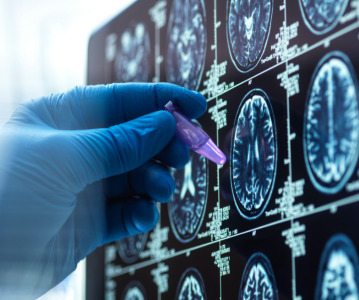Data at AAN Showed Gilenya High Efficacy in Achieving 'No Evidence of Disease Activity' in Previously-Treated Highly-Active MS Patients

Novartis has announced new analysis from the phase III FREEDOMS and FREEDOMS II trials presented at the 67th American Academy of Neurology (AAN) Annual Meeting in Washington, DC, USA. These data showed that previously-treated patients with highly-active relapsing multiple sclerosis (RMS) who were treated with Gilenya (fingolimod) had a six-times greater likelihood of achieving 'no evidence of disease activity' across four key measures of disease activity compared to placebo over two years (odds ratio 6.35; 95% CI 3.02-13.35; p<0.0001). This is referred to as NEDA4 and is achieved when a patient with RMS has no relapses, no new MRI lesions, no MS-related brain shrinkage and no disability progression.
This analysis was the first time patients with highly-active RMS who had been treated in the previous year with an injectable therapy were assessed using the NEDA4 definition that includes brain shrinkage[1]. Brain shrinkage is a marker of the widespread inflammatory (diffuse) damage in the central nervous system and is associated with accumulated loss of function[2]-[9]. By using this updated NEDA4 definition, physicians are able to get a more complete picture of a patient's disease and response to treatment, which is crucial to identify the optimal therapy to slow short- and long-term disease progression. This is especially important for people with highly-active RMS, who are at a greater risk of relapses and future loss of function, and may therefore require a different treatment approach.
"NEDA4 is a major step forward in assessing RMS progression, helping physicians to develop effective disease management and treatment strategies for their patients," said Vasant Narasimhan, Global Head of Development at Novartis Pharmaceuticals. "These data confirm that Gilenya's high efficacy across the four key measures is maintained in previously-treated highly-active RMS, and underscores the important role of Gilenya in the treatment of RMS patients."
Separate analysis from the entire phase III TRANSFORMS study also confirmed that after one year of treatment, RMS patients on Gilenya were twice as likely to achieve NEDA4 compared to patients given Avonex - interferon beta-1a i.m. injections (odds ratio 1.93; 95% CI 1.36-2.73; p=0.0002)[10]. The data provide further evidence of how Gilenya helps RMS patients achieve NEDA4 across four key measures of disease activity.
Related News
-
News Cassava Sciences halts Alzheimer's drug trial after limited progress
Cassava Sciences have drawn a close to their investigations and development of the drug simufilam, which they intended to be used for the treatment of Alzheimer’s disease. -
News US FDA adds haemodialysis bloodlines to devices shortage list
On March 14, 2025, the US FDA published an open letter to healthcare providers citing continuing supply disruptions of haemodialysis bloodlines, an essential component of dialysis machines. -
News Vertex Pharmaceuticals stock jumps as FDA approves non-opioid painkiller
UK-based Vertex Pharmaceuticals saw their stock shares soar as the US FDA signed off on the non-opioid painkiller Journavx, also known as suzetrigine, for patients with moderate to severe acute pain, caused by surgery, accidents, or injuries. -
News Lessons from CPHI Milan 2024: Sunny Intervals for Pharma Manufacturing?
As the 2024 CPHI conference wrapped up in Milan, we caught up with L.E.K. Consulting – a global strategy consulting firm with deep expertise in pharma manufacturing – to discuss evolving market perspectives and business outlook. -
News US BIOSECURE Act passed by US House of Representatives
The controversial act, which has already impacted several foreign companies operating in the US, was passed by the House of Representatives on September 9, 2024. It is now headed for the US Senate before it can be signed into law by President Joe Biden... -
News Pharmaceutical Supply Chain People Moves
The latest appointments, promotions, and structural changes across the pharmaceutical supply chain. -
News Drug prices agreed upon as part of the US Inflation Reduction Act
The Inflation Reduction Act brought into constitution by the Biden administation in 2022, which proposed a drug price negotiation between the government and pharmaceutical companies, has reached it's first agreement. -
News BIOSECURE Act continues to loom over Chinese pharma manufacturers
With the US BIOSECURE Act on its way to passing into legislation, Chinese companies are facing declining revenues within the first half of 2024 as US pharmaceutical and healthcare companies pull their businesses from the country.
Recently Visited
Position your company at the heart of the global Pharma industry with a CPHI Online membership
-
Your products and solutions visible to thousands of visitors within the largest Pharma marketplace
-
Generate high-quality, engaged leads for your business, all year round
-
Promote your business as the industry’s thought-leader by hosting your reports, brochures and videos within your profile
-
Your company’s profile boosted at all participating CPHI events
-
An easy-to-use platform with a detailed dashboard showing your leads and performance







.png)